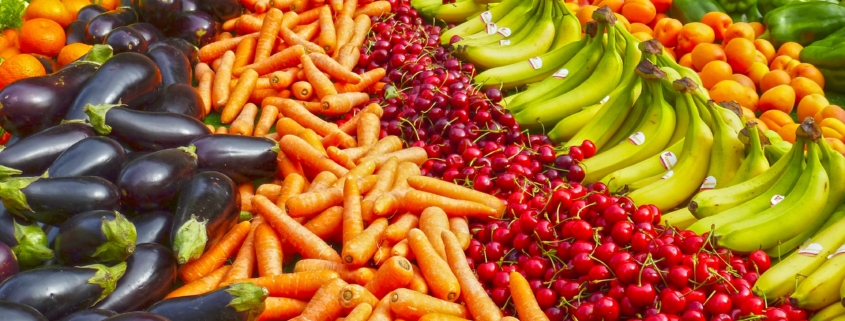Reductive nutritionism: playing into the hands of ultra-processed food industry
What should we be eating?
Tomatoes!
They have lycopene in them! And lycopene should protect us from cancer and heart disease. Do we cook them to get their maximal benefit or eat them raw? Should we be eating them everyday? It was all anyone could talk about ten years ago.
And then…we stopped talking about lycopene and started talking about lectins.
Tomatoes have lectins in them! And lectins might promote disease. Should we remove the seeds from tomatoes? Should we cook them? Should we avoid them altogether?
What’s someone who doesn’t want to die (at least, not right away) to do?
Since pretty much everything we eat has been labeled as potentially toxic by someone, somewhere, calling themselves a health guru (or maybe even a doctor), better be safe and reach for “food” wrapped in shiny packaging proclaiming how natural and organic it is.
GMO-free! Hormone-free! No lectins!
Or better yet, reach for a bottle (or ten) of supplements that are supposed to ward off disease and be much better for us than whatever dangers may lurk in the produce aisle. That we have been lured away from fresh fruits, vegetables, and grains by all kinds of diets and self-proclaimed experts is one of the greatest cons perpetrated on the American people since George Parker was offering to sell his marks the Brooklyn Bridge.
I’m not a conspiracy theorist by nature and am more likely to attribute the missteps we make to earnest ignorance rather than to malicious intent. But, the rate at which the latest entrant into the “real food is bad for you” diet seems to sweep the nation, makes me wonder if the ultra-processed food industry doesn’t give the craze a small, or maybe even a big, push.
It turns out that fad diet gurus and ultra-processed food purveyors make for strange, but profitable, bedfellows. The more real, whole food you are afraid to eat, the more packaged stuff you’ll be forced to buy—after all, you have to eat something to sustain life, let alone prolong it. Whether that package is a cardboard box filled with flakes of questionable health value or a plastic bottle of the latest and greatest dietary supplement, someone, somewhere, is spending very little to charge you a whole lot for what you could probably get from an apple.
The profit margins on produce are thin. The money made on ultra-processed foods runs into the trillions. The supplement industry is also doing quite well. So, maybe it’s not a conspiracy, but there’s not a lot of marketing dollars to be spent on salads.
A professor once told me that any drug the pharmaceutical companies have to advertise probably doesn’t work very well.
“If it’s really good, everyone will just use it. It will advertise itself.”
Well, it turns out, that professor underestimated how effective marketing can be or maybe he just overestimated how smart we are.
Because whole foods have been proven in study after study to promote a healthy weight and long life. No fad diet has ever been shown to do much of anything for adherents long-term (very few people can stick with them for very long anyway). And the evidence for 99.9% of the supplements out there is shaky at best and sometimes shows that they are harmful.
And yet, the hucksters selling us the equivalent of the Brooklyn Bridge are making best-seller lists, while whole-food proponents like Marion Nestle and Tim Spector, sometimes seem to be shouting into the void. The latter has the bulk of the evidence, but the former has the sales pitch.
So, I’ll propose a new diet—the half-plate vegetables diet. Just make sure every time you eat, at least half of your plate has veggies on it (and no, French fries don’t count, kids). What I’ve learned though, is that if the diet is going to be a success, it’ll need a catchier name. I’m taking suggestions….

